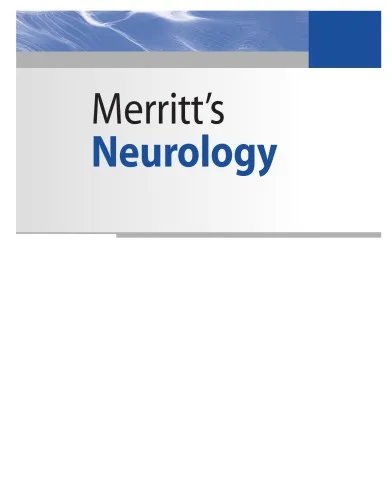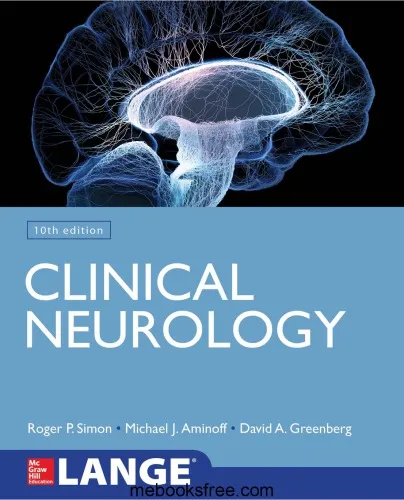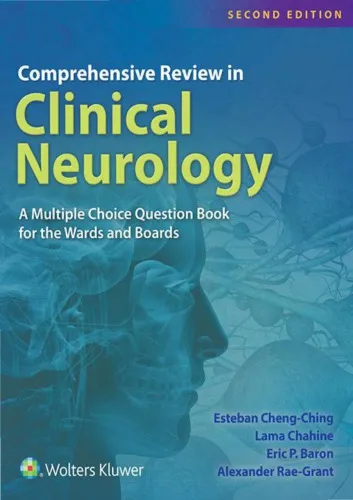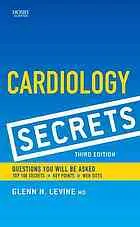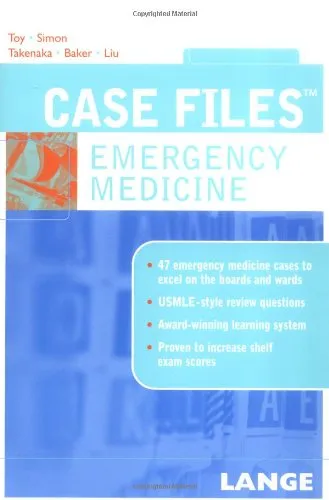Handbook of Clinical Neurology. Multiple Sclerosis and Related Disorders
5.0
Reviews from our users

You Can Ask your questions from this book's AI after Login
Each download or ask from book AI costs 2 points. To earn more free points, please visit the Points Guide Page and complete some valuable actions.Related Refrences:
The 'Handbook of Clinical Neurology: Multiple Sclerosis and Related Disorders' is an invaluable resource for both practitioners and scholars in the field of neurology. It encapsulates years of dedicated research and clinical experience concerning one of the most challenging areas in neurology—multiple sclerosis (MS) and its related disorders. This comprehensive guide aims to provide readers with a nuanced understanding of the disease, its pathophysiology, management strategies, and the latest advancements in research and treatment.
Detailed Summary of the Book
This handbook offers an extensive survey of the state-of-the-art knowledge surrounding multiple sclerosis, delving into its complex etiology and diverse clinical manifestations. The book is structured to guide the reader through the diagnostic processes, which include the latest imaging techniques and biomarkers, offering insights into how these tools can be employed to distinguish MS from other related disorders. Each chapter is crafted by leading experts in the field, ensuring that the content is both authoritative and up-to-date.
Furthermore, the book elaborates on the various therapeutic approaches, covering everything from traditional pharmacological treatments to cutting-edge therapies, such as stem cell transplants and immune system modulators. There is a strong emphasis on personalized medicine, recognizing the importance of tailoring treatment strategies to the individual needs of patients. The book also explores the psychosocial aspects of living with MS, acknowledging the profound impact of the disease on patients' quality of life.
Key Takeaways
- A thorough understanding of the latest diagnostic tools and their application in clinical practice.
- Insights into a broad spectrum of treatment options, including emerging therapies and how they can be integrated into patient care.
- In-depth coverage of the pathophysiology of MS, including genetic, environmental, and immunological factors.
- An appreciation for the multidisciplinary approach required in managing MS, involving neurologists, physiotherapists, psychologists, and social workers.
- Practical strategies for addressing the psychosocial challenges faced by individuals with MS and their families.
Famous Quotes from the Book
"Understanding multiple sclerosis and its myriad manifestations is akin to piecing together a vast and intricate puzzle — a task that requires both scientific rigor and compassionate care."
"In the management of MS, the goal is not merely to treat symptoms, but to empower patients to lead full, productive lives despite the challenges they face."
Why This Book Matters
This book is a crucial addition to the literature on multiple sclerosis and related disorders because it synthesizes the latest research with practical advice for clinicians. It is specially designed to be both a comprehensive reference for seasoned neurologists and an accessible guide for those new to the field. As MS research continues to evolve rapidly, this handbook serves as both a snapshot of current understanding and a beacon for future investigations.
By bridging the gap between emerging scientific discoveries and clinical application, this book contributes significantly to improving patient outcomes. It underscores the importance of continuous learning and adaptation in a field that is constantly evolving. More importantly, it serves as a reminder that at the heart of every medical advancement are the lives of patients, whose experiences drive the relentless pursuit of knowledge and treatment innovations.
Free Direct Download
You Can Download this book after Login
Accessing books through legal platforms and public libraries not only supports the rights of authors and publishers but also contributes to the sustainability of reading culture. Before downloading, please take a moment to consider these options.
Find this book on other platforms:
WorldCat helps you find books in libraries worldwide.
See ratings, reviews, and discussions on Goodreads.
Find and buy rare or used books on AbeBooks.
1331
بازدید5.0
امتیاز0
نظر98%
رضایتReviews:
5.0
Based on 0 users review
Questions & Answers
Ask questions about this book or help others by answering
No questions yet. Be the first to ask!

